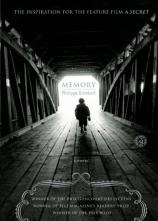Reading Group Guide
Discussion Questions
Memory

1. Philippe imagines two versions of his parents’ story. In both cases many details are supplied by his imagination. What are the significant differences and similarities between the two stories? Why is it so important for Philippe to imagine them in such detail?
2. Philippe frequently refers to his parents’ extreme athleticism and his own physical weakness as a child and adolescent. As the threat of deportation looms, Philippe images Maxime training harder than ever before, “keen to cover his chest with medals, to stand on the highest step of the podium.” Discuss the significance of physical strength in the novel.
3. Who was President Laval? Describe the two occasions in which Laval’s name appears in the novel. What is the psychological function of these seemingly coincidental occasions for Philippe?
4. Why does the young Philippe invent a fictional older brother? Describe the role of this imaginary brother in Philippe’s life.
5. What happens to the imaginary brother once Philippe learns of Simon’s existence? Why?
6. Watching a fictional movie set during the war years, the adolescent Philippe is aroused by the depiction of naked prisoners at a concentration camp. How are grief and shame linked to desire in the novel?
7. Why are Hannah and Simon picked up by the police and deported? While Hannah’s family attributes her showing the police the wrong papers to “mind-blowing carelessness,” Philippe ascribes a different cause. “Hannah, the perfect mother, had turned into a tragic heroine; the fragile young woman suddenly became a Medea, sacrificing her child and her own life on the altar of her wounded heart.” Which version do you find more convincing?
8. Memory is a novel by Philippe Grimbert about a character named Philippe Grimbert, whose life story very closely resembles the author’s own. The fictional Philippe uses the facts given to him by Louise to create an imaginary account of his parents’ story. Discuss the relationship between truth, fiction, and lies in the novel.
9. How does discovering the truth about his family change Philippe’s relationship to his father? What do you think accounts for this change?
10. Both the real and the fictional Philippe become psychoanalysts, largely because of the impact of the experiences described in the novel. How do psychological phenomena such as fantasy, repression, and association help shape the narrative?
Memory
- Publication Date: December 30, 2008
- Paperback: 176 pages
- Publisher: Simon & Schuster
- ISBN-10: 1416560009
- ISBN-13: 9781416560005







